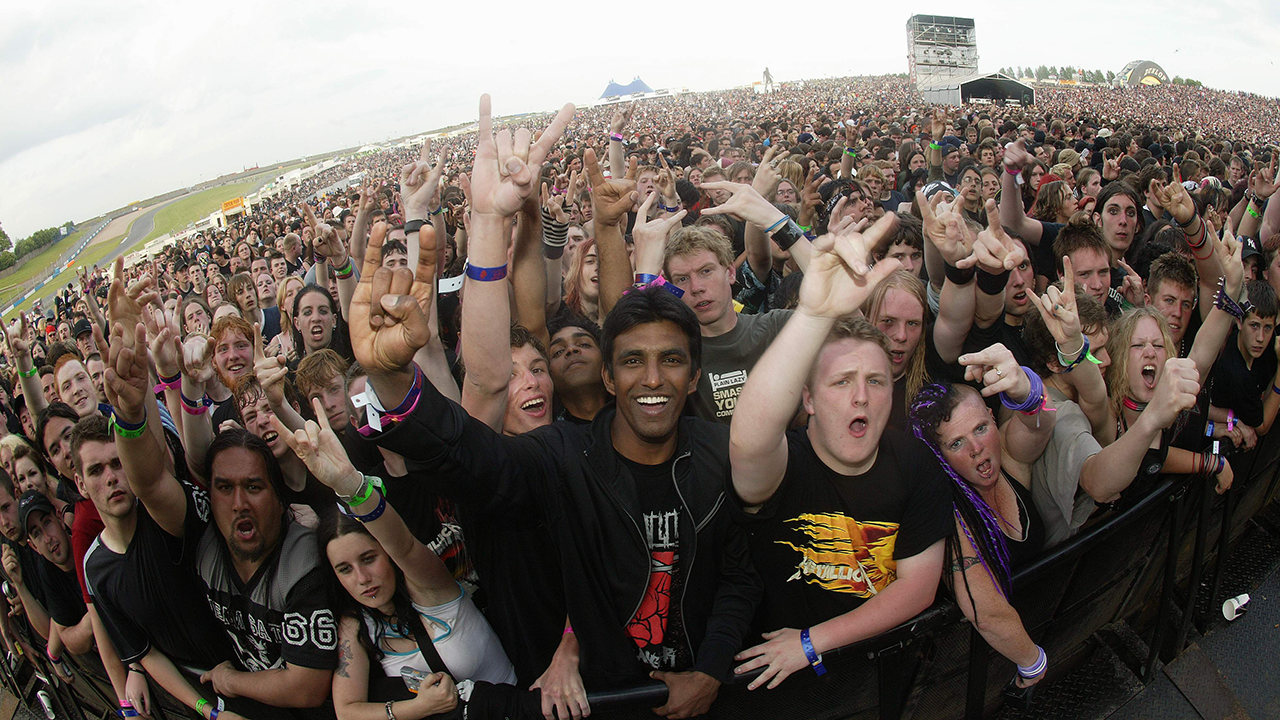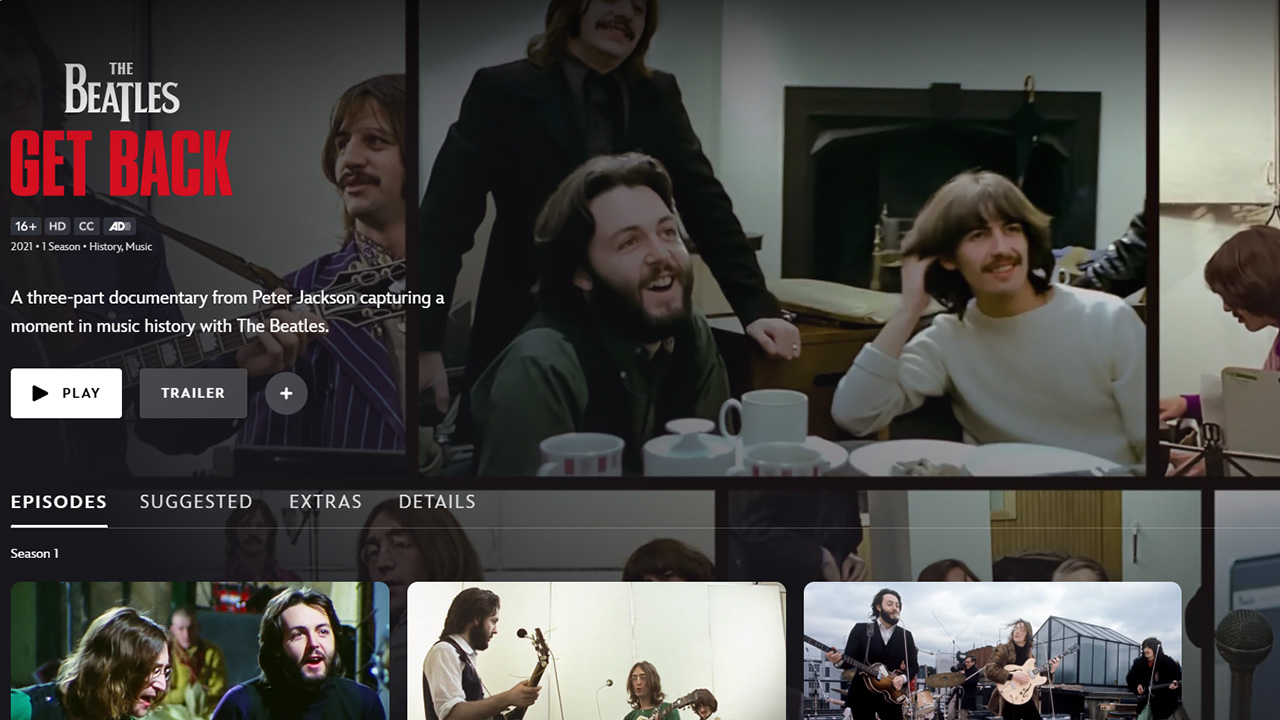Do we really miss music festivals? (Spoiler alert: yes we do)
As a festival-free summer draws to a close, we look at why British fests are so close to our hearts – sh*tty weather, warts n' all

Select the newsletters you’d like to receive. Then, add your email to sign up.
You are now subscribed
Your newsletter sign-up was successful
Want to add more newsletters?

Every Friday
Louder
Louder’s weekly newsletter is jam-packed with the team’s personal highlights from the last seven days, including features, breaking news, reviews and tons of juicy exclusives from the world of alternative music.

Every Friday
Classic Rock
The Classic Rock newsletter is an essential read for the discerning rock fan. Every week we bring you the news, reviews and the very best features and interviews from our extensive archive. Written by rock fans for rock fans.

Every Friday
Metal Hammer
For the last four decades Metal Hammer has been the world’s greatest metal magazine. Created by metalheads for metalheads, ‘Hammer takes you behind the scenes, closer to the action, and nearer to the bands that you love the most.

Every Friday
Prog
The Prog newsletter brings you the very best of Prog Magazine and our website, every Friday. We'll deliver you the very latest news from the Prog universe, informative features and archive material from Prog’s impressive vault.
Last month a sound engineer friend of mine sent me a photo of an outdoor stage. The band he works for were, it appeared, killing it at Switzerland’s Palp Festival. The crowd was noticeably spaced but very much there. The accompanying message read: ‘WE DID A GIG!’
In a typical year, this would be one of many similar snapshots filling my photo library. This year it felt triumphant – a rare, giddy blast of in-the-flesh live music, in a summer so notable for its lack of them.
This September, the familiar back-to-school feeling has been compounded by Covid-induced issues. Social distancing, health problems, working from home, job losses, buggered exam results… And for those of us of a gig-loving disposition, it’s perhaps the first time in a long time that we don’t have a wave of fresh festival memories.
For people who work in the live music industry, the ramifications of this have been devastating. Those of us who attend as punters may not have had our livelihoods decimated in this way, but it has redesigned a significant portion of our year.
Noticing my mud-free boots by the door the other day – and the lack of wristbands, soggy notebook pages and energy bar wrappers at the bottom of my backpack – I realised that this has been my first festival-free summer in a decade. Without wellies. Minus mud. Sans sunburn combined with that gross, congealed mess of suncream, mascara and the unidentified warm liquid someone threw over me after Iron Maiden that year at Download.
In the cold (or rather, warm and dry) light of day, have our summers been poorer for lack of festival fun? Do we actually miss it?
Maybe we’re a hardened bunch. Maybe our brains have been pickled by years of loud guitars accompanied by unrelenting rain showers and industrial quantities of warm beer/box wine/hipflask-poison-of-choice. But despite the less desirable elements of British festivals (and they’re not hard to spot), it’s easy to respond with a resounding ‘yes, yes, a thousand times yes!’. We really miss pub gigs, club gigs, arena shows and, yes, we miss festivals.
The latest news, features and interviews direct to your inbox, from the global home of alternative music.
As anyone who’s trudged through storms, thigh-deep in mud, in search of a monsoon-free camping spot on day one of Glastonbury knows, the UK is not built for outdoor festivals. Or any outdoor occasions, for that matter (weddings, firework displays, leaving the house without protective gear on any given day that isn’t part of a rogue heatwave). We are a small island nation surrounded by sea. We are totally vulnerable to whatever meteorological colossus decides to roll in from the Atlantic. Okay, so there’s a lot more scientific subtlety to it than this – but as far as most of us are concerned, that’s the fundamental upshot.
Nobody denies this. In last month’s Classic Rock magazine, Dave Everley spoke to key Monsters Of Rock players, who recalled in enthralling detail the weather-based horrors and ‘never again!’ vows of punters – only for them to be followed by eager calls of ‘right, who’s playing next year then?’. It’s an intrinsic part of the experience.
Since the days of MOR and Isle Of Wight, the UK has been a renowned festival hotspot. We have fucking loads of them. Between them they cater to a range of different tastes from Download to Glastonbury to Latitude to smaller affairs like Bloodstock, Ramblin’ Man Fair, Stonedeaf and many, many more.
We know the weather is shit. The bands know the weather is shit. During last year’s festival season I lost count of the sunkissed American artists expressing their awe at the soggy masses before them – still there, still cheering with genuine delight, even as the wind howled and the rain turned horizontal.
Doesn’t it say something about the transportive power of live music, if we’re willing to put up with apocalyptic rainfall, omnipresent mud and freely urinating strangers for a prolonged dose of it? Nay, if we actually obtain real pleasure, from said live music, because of said conditions? It’s that infectious sense of camaraderie and community that’s perversely unique to roughing-it circumstances.
Without wanting to be too freaky or wishy-washy about it, there’s something kind of sublime about watching a band you love – whether it’s an old favourite or one you’ve just discovered – playing brilliantly to thousands. It’s the intangible, transcendental power of music that separates it from all other art forms. You hear, see and feel it physically, emotionally, inexplicably.
And perhaps it’s because you can still have that experience, even in such un-glitzy surroundings, that it’s so pleasing. Even more pleasing, even. Slick, socially distanced gigs with viewing platforms might work for pop, jazz and classical gigs, but it’s hard to see it working for heavy, balls-to-the-wall rock and metal shows.
Efforts made to substitute in-the-flesh concerts with livestreams (by individual artists and bigger organisations alike) are completely commendable – a highly worthwhile stopgap to keep the industry we love afloat until ‘the new normal’ becomes... well, not normal again. For as long as they’re a part of how bands keep the show going, we’ll gladly support them.
But as soon as gigs and festivals can happen again, in full, sweaty, Tuborg-throwing, shoulder-to-shoulder Technicolour? We’ll see you there.

Polly is deputy editor at Classic Rock magazine, where she writes and commissions regular pieces and longer reads (including new band coverage), and has interviewed rock's biggest and newest names. She also contributes to Louder, Prog and Metal Hammer and talks about songs on the 20 Minute Club podcast. Elsewhere she's had work published in The Musician, delicious. magazine and others, and written biographies for various album campaigns. In a previous life as a women's magazine junior she interviewed Tracey Emin and Lily James – and wangled Rival Sons into the arts pages. In her spare time she writes fiction and cooks.
